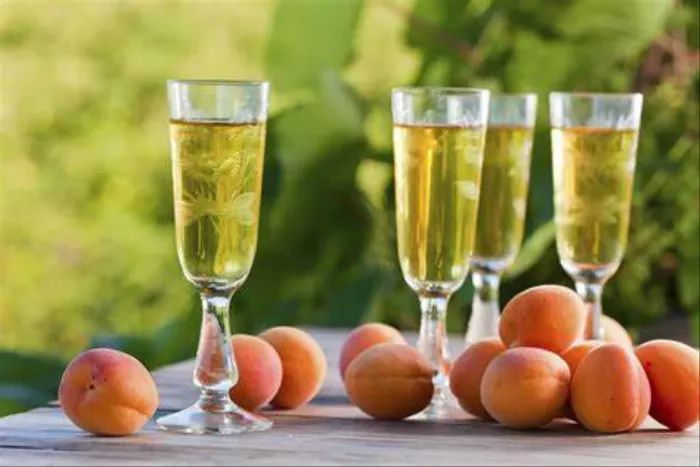The ongoing debate about whether Tusker Cider qualifies as a beer often stems from the product’s nature, brewing process, and consumer perception. Understanding the nuances between cider and beer is essential to address this intriguing question.
Defining Tusker Cider and Beer
To delve into the inquiry of “Is Tusker Cider a beer,” it’s crucial to comprehend the fundamental differences between cider and beer. Beer, a widely consumed alcoholic beverage, is traditionally made from fermented malted barley, hops, yeast, and water. Its brewing process involves mashing grains, boiling the mixture, adding hops for flavor, fermenting with yeast, and conditioning before bottling or kegging.
Contrarily, cider, like Tusker Cider, is crafted from fermented apple juice or other fruits, deviating from beer’s primary ingredient of barley. The fermentation process for cider involves crushing fruit, extracting juice, fermenting with specific yeast strains, and sometimes adding sugars or flavorings. These distinct ingredients and processes inherently differentiate cider from beer.
Ingredients and Brewing Process of Tusker Cider
Tusker Cider, produced by East African Breweries Limited (EABL), stands out for its unique blend of hand-picked Kenyan apples, sugar, water, and yeast. The brewing process starts with ripe apples being carefully selected, crushed, and pressed to obtain pure juice. This juice undergoes fermentation using specialized yeast strains, imparting Tusker Cider with its distinctive taste profile.
While some beer-making elements are present in the cider production process, such as yeast and fermentation, the absence of malted barley in Tusker Cider’s ingredients sets it apart definitively. Hence, from a technical standpoint, Tusker Cider does not fit the conventional definition of beer due to its primary use of apples instead of barley.
Distinctive Characteristics: Tusker Cider vs. Beer
Tusker Cider boasts unique characteristics that differentiate it significantly from beer. Its flavor profile, influenced by the choice of apples and fermentation process, tends to be sweeter and fruitier compared to the diverse tastes of beers, which can range from bitter and hoppy to malty or even sour.
Moreover, the alcohol content in Tusker Cider, usually falling within the 4-6% ABV (Alcohol By Volume) range, aligns more closely with certain beer styles like session ales or lagers. However, this shared alcohol content doesn’t alter the fact that cider’s fermentation primarily derives from fruit sugars, unlike beer’s reliance on malt sugars.
Consumer Perception and Classification
Consumer perception plays a pivotal role in the ongoing debate over whether Tusker Cider is a beer. While some individuals may classify it as a beer due to its alcoholic content and comparable packaging, others assert that its distinctive apple-based production renders it more akin to a fruit-based beverage rather than a beer.
The categorization of Tusker Cider within the alcoholic beverages market further complicates its classification. Some regulatory bodies or retailers might classify it under beer due to its alcohol content and commercial similarities. However, this classification might be purely for commercial or logistical purposes rather than based on technical brewing definitions.
See Also: what type of beer is asahi
Legal and Regulatory Perspectives
From a legal and regulatory standpoint, the classification of Tusker Cider often depends on the specific regulations governing alcoholic beverages in different regions. In some jurisdictions, cider is treated separately from beer due to its distinctive ingredients and production methods. Consequently, Tusker Cider may be classified differently from beer based on these legal frameworks.
However, discrepancies between regulations and technical brewing definitions can create ambiguity. In certain regions, Tusker Cider might be sold alongside beers due to its alcohol content or distribution channels, despite not adhering strictly to the traditional beer-making process.
Marketing Strategies and Consumer Engagement
The marketing strategies employed by EABL for Tusker Cider often influence consumer perception and engagement. Utilizing beer-related marketing tactics like branding, packaging, and distribution channels could lead consumers to perceive Tusker Cider as a variation of beer. However, this strategy might inadvertently contribute to the ongoing debate regarding its classification.
Additionally, consumer engagement through tasting events, promotions, and advertising campaigns plays a crucial role in shaping perceptions. Presenting Tusker Cider alongside beers in such events might reinforce the idea that it falls within the broader spectrum of alcoholic beverages, blurring the lines between cider and beer in consumers’ minds.
The Global Evolution of Cider and Beer Culture
The evolving global landscape of alcoholic beverages reflects a shift in consumer preferences and tastes. The resurgence of craft breweries and the growing popularity of artisanal ciders demonstrate a dynamic shift in consumer choices. This shift challenges conventional definitions and encourages a broader perspective on what constitutes beer or cider.
In recent years, the boundary between beer and cider has become increasingly porous due to experimentation by brewers and cider makers. This experimentation has led to the creation of hybrid beverages that incorporate elements of both beer and cider, further blurring the lines between the two.
Conclusion
In conclusion, the debate over whether Tusker Cider is a beer stems from the intricate distinctions between the ingredients, brewing process, consumer perception, and regulatory frameworks. While Tusker Cider shares certain similarities with beer in terms of alcohol content and market presentation, its foundation in apple-based fermentation places it distinctly within the cider category.
Ultimately, the classification of Tusker Cider as a beer or cider often relies on individual perspectives, regulatory classifications, and marketing strategies. As the alcoholic beverage landscape evolves and consumer tastes diversify, the boundaries between beer and cider continue to blur, sparking intriguing debates and challenging traditional definitions within the industry.


